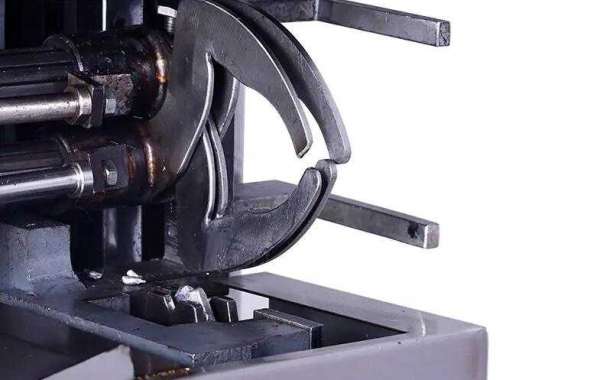Dental crowns are one of modern dentistry's most common restorative treatments, offering patients a reliable solution for damaged, decayed, or weakened teeth. Crowns are designed to restore a tooth's shape, size, and function, and they can dramatically improve aesthetics and oral health. However, as with any dental treatment, patients often wonder: how long do dental crowns last?
The lifespan of dental crowns in Crestview depends on a variety of factors, including the material of the crown, oral hygiene habits, lifestyle choices, and overall dental health. In this blog, we will explore these factors in more detail to better understand what to expect from your dental crown regarding longevity.
Average Lifespan of a Dental Crown
On average, a well-maintained dental crown can last 10 to 15 years, and some even last longer. This makes dental crowns a long-lasting option for restoring a tooth. However, the lifespan of your crown will depend on several variables that can either prolong or shorten its longevity.
Factors Affecting the Lifespan of a Dental Crown
1. Material of the Crown:
One of the most significant factors affecting the longevity of a dental crown is the material it is made from. Different materials offer different levels of durability and wear resistance.
Porcelain Crowns: They are popular for their natural appearance and ability to blend seamlessly with the surrounding teeth. However, they may not be as durable as other materials and are more prone to chipping or cracking over time. On average, porcelain crowns last about 10 to 15 years.
Porcelain-Fused-to-Metal Crowns: These crowns combine the aesthetic appeal of porcelain with the strength of a metal base. They are highly durable and can last between 10 and 20 years with proper care. The metal base provides additional strength, making them suitable for teeth that endure a lot of pressure, such as molars.
Gold Crowns: Gold crowns are incredibly durable and resistant to wear. They can last up to 20 years or more, making them the longest-lasting option. While they are not as aesthetically pleasing as porcelain crowns, their strength and longevity make them an excellent choice for molars or teeth in the back of the mouth.
Zirconia Crowns: Zirconia crowns are relatively new to the dental scene but have quickly gained popularity due to their strength and natural appearance. These crowns can last between 15 and 20 years, making them a great long-term solution for many patients.
2. Oral Hygiene Habits:
Good oral hygiene is crucial for the longevity of your dental crown. While crowns are durable, the natural tooth beneath the crown can still decay if not properly cared for. Brushing twice a day, flossing regularly, and visiting the dentist for routine check-ups are essential practices that can help extend the lifespan of your crown. Neglecting oral hygiene may lead to gum disease or decay around the crown, which can result in the need for early replacement.
3. Lifestyle Choices:
Certain lifestyle choices can significantly impact the lifespan of a dental crown. For example:
Teeth Grinding (Bruxism): If you grind your teeth at night, the constant pressure on your crown can cause it to wear down or crack. Using a custom nightguard can help protect your crown from the effects of bruxism.
Chewing Hard Foods: Chewing on ice, hard candies, or other tough substances can put excessive pressure on a crown, potentially causing it to crack or become loose. Avoiding these habits can help preserve the integrity of your dental crown.
Smoking and Tobacco Use: Smoking can contribute to the buildup of plaque and tartar around your crown, which may shorten its lifespan. Tobacco use can also lead to gum disease and other oral health issues, negatively affecting the longevity of your crown.
4. Overall Dental Health:
Your general dental health plays a significant role in the success of your dental crown. If you have underlying issues such as gum disease or tooth decay, your crown may be at a higher risk of failure. Regular dental visits, professional cleanings, and early intervention for any dental problems are essential for ensuring the long-term success of your crown.
When Should You Replace a Dental Crown?
While dental crowns are designed to be durable, they are not immune to wear and tear. If you notice any of the following signs, it may be time to replace your crown:
Pain or Sensitivity: If your crowned tooth becomes painful or sensitive to hot or cold temperatures, it could indicate that the crown is no longer properly sealed or that there is decay underneath.
Cracks or Chips: If your crown becomes cracked, chipped, or damaged, it is important to have it evaluated by a trusted dentist in Crestview to prevent further complications.
Loosening: If your crown feels loose or detached, it could signify that the bond between the crown and the underlying tooth has weakened.
Dental crowns are a durable and effective solution for restoring damaged teeth, and they can last many years with proper care. On average, dental crowns last between 10 and 20 years, depending on the material, your oral hygiene habits, and lifestyle choices. Maintaining a healthy mouth and avoiding harmful habits can help you maximize the lifespan of your crown and ensure a successful outcome for years to come. If you have any concerns about your crown or are noticing signs of wear, visit your dentist for a consultation.










